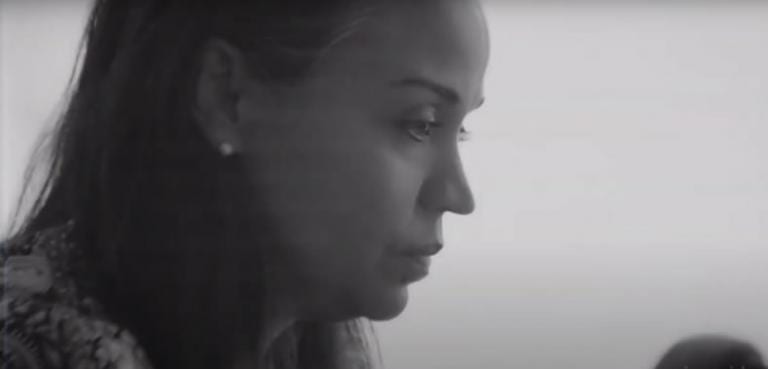
Time, a powerful new documentary directed by Garrett Bradley and available now on Amazon Prime, looks at the criminal justice system through the eyes of Fox Rich, a woman trying for nearly two decades to get her husband released.
But the film highlights faith, too. Because when it can’t have faith in the system, this family finds it elsewhere.
Fox Rich—also known as Sibil Fox Richardson—helped her husband rob a bank in 1997. They were trying to keep their own business afloat, and they were struggling to pay the bills. “Desperate people do desperate things,” Fox says in the doc. “It’s as simple as that.”
The two were arrested and Fox took a plea deal. Her husband, Rob, did not. He was convicted and sentenced to 60 years: no probation, no parole. The sentence, we’re told, was almost unheard of for a crime that didn’t involve injury or death.
Time deftly weaves a narrative that stretches over 21 years, through Fox’s own home movies and Bradley’s modern documentation. We see Fox transform in the film—from a young, pregnant, hurting mom to a self-assured entrepreneur and activist. She sells cars and campaigns on TV and celebrates the achievements of her six sons whom she raised, essentially, by herself. She speaks against what she calls the “industrial prison complex,” which she believes discriminates against the poor and minorities. And in the cracks between all that, she works Louisiana’s judicial system—calling clerks and judges to follow up on a new hearing, waiting on hold for minutes that seem like hours.
“Success,” she mutters after another fruitless call, “is the best revenge.”
Fox impresses viewers with her tenacity and drive. And her whole family—seemingly through sheer willpower—has found plenty of secular success. One of her sons tells us that most kids who have a parent in prison don’t graduate from high school. He’s getting set to not just graduate, but graduate early and move on to college.
But I was also deeply impressed with the faith that seems to undergird this family: Faith in each other, but faith in God, too. We see that especially from Rob, who while on a prison call quotes Scripture. “Good looks after the sparrow, Sibil,” he says over the phone from prison. “I know he’s gonna take care of us.”
Fox seems less demonstrative in her faith—perhaps because she simply doesn’t have that kind of time. But we see her at church plenty during the documentary. And in older home movies, she speaks to her congregation in one of the film’s most moving scenes.
Fox tells her church that, years after she and her husband robbed that bank, she went to ask for forgiveness from a couple of women who were there that day. Those women asked Fox if she’d also apologized to her mother for what she did.
“I know that I told my mother I loved her,” Fox says. “I told my mother I appreciated her. But I cannot recall asking my mother to forgive me.”
And there, in front of the church, she asks for forgiveness: from her mother; from her children; from her pastor; from the church.
That’s the subtle beauty that undergirds Time, I think. It’d be one thing if Fox was railing against an unfair system without also taking responsibility for her and her husband’s actions. But that’s not what we find here. We find, instead, a biblical model of restoration: Repentance begets forgiveness, a story in which Fox acknowledges the need for grace and demands justice all at the same time.
Time is an effective, inspiring film, one that not only sparks a conversation on inequity in the criminal justice system, but one that’ll be in the conversation when awards season starts to roll. And it’s worth your time to watch.













